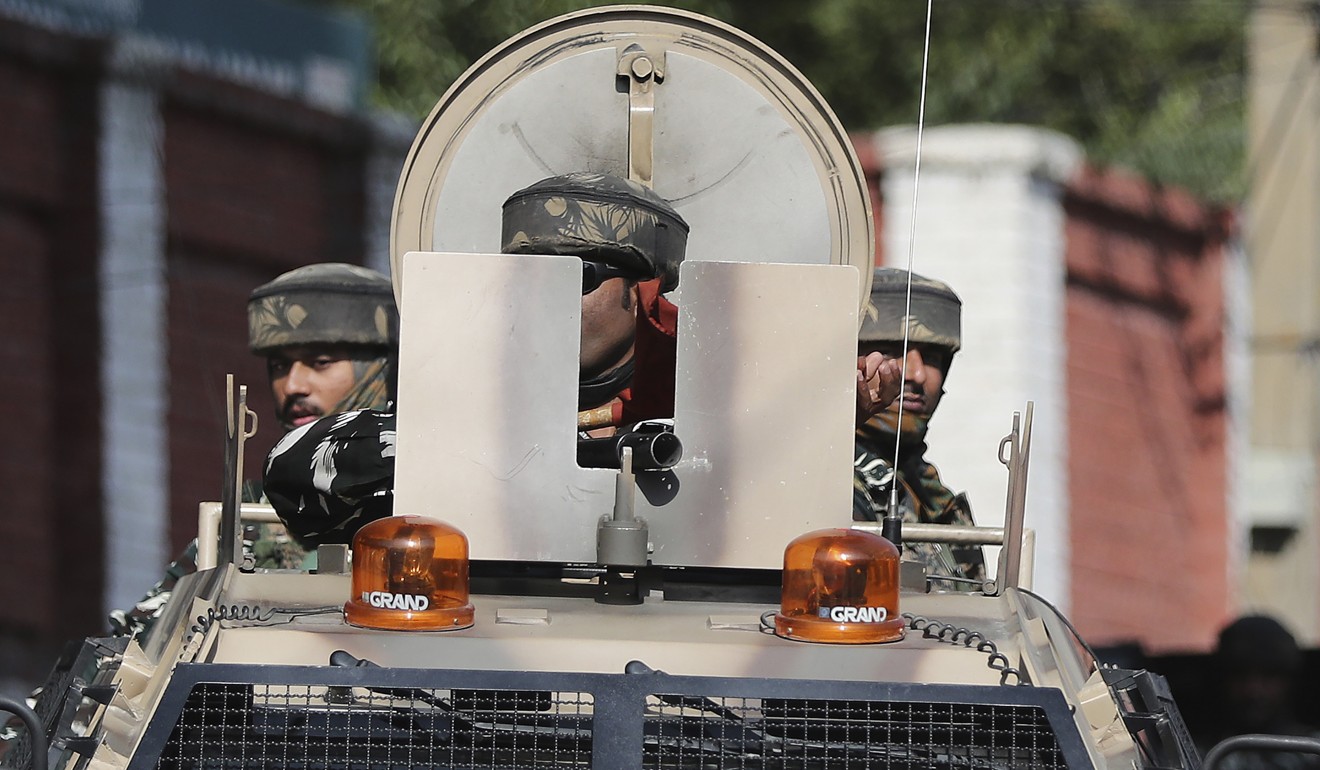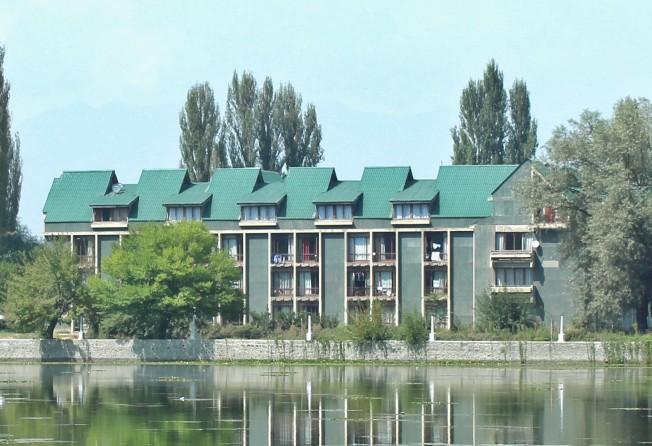
How a four-star hotel in Indian-held Kashmir became a political prison
- Until recently, the Centaur Lake View Hotel offered lavish suites and hosted political conferences that saw Kashmiri leaders defend India’s rule over the disputed region
- But since Narendra Modi’s crackdown on Kashmir, the hotel has turned into a makeshift jail to house those same leaders

Perched on the foothills of the Zabarwan mountains, overlooking the scenic Dal Lake, the lavish Centaur Lake View Hotel seems an unlikely place to find political prisoners.
Until recently, the four-star establishment offered luxurious rooms with panoramic views, including executive, deluxe and presidential suites costing up to US$357 a night. The hotel, spread across 13 acres of land in the Kashmir Valley, also boasted round-the-clock protection with “three tiers” of security, including the police and paramilitary forces.
But for the past seven weeks, the hotel in Indian-administered Jammu and Kashmir has been serving as a subsidiary jail housing pro-India political leaders and activists.
Built 35 years ago, the Centaur – owned by the Hotel Corporation of India, a subsidiary of Air India – was the brainchild of Sheikh Mohammad Abdullah, a former chief minister of the region and the founder of Kashmir’s oldest political party, the National Conference party.

Abdullah, nicknamed Sher-i-Kashmir (the Lion of Kashmir), negotiated the post-Partition compromise with India on Kashmir that led to the Articles 370 and 35A, which defined the partial autonomy of the disputed territory, being embedded into the Indian constitution.
However the region continued to be in dispute between Pakistan and India, whose historically bitter relations have soured further in recent years, particularly after the election of Indian Prime Minister Narendra Modi and his Hindu-nationalist Bharatiya Janata Party (BJP) government.
This year on August 5, Modi’s administration revoked the autonomy of Jammu and Kashmir and ordered a lockdown on the region, including cutting off communications and imposing curfews. Thousands were arrested, including Kashmiri politicians, civil society members, lawyers and activists – with many housed in makeshift prisons across the Kashmir Valley. Abdullah’s son and grandson were among those detained.
The Centaur is now one such detainment centre. For some 50 detainees, the hotel’s 252 rooms have become cells, with tourists being replaced by inmates, chefs replaced with prison cooks, and police officers effectively serving as jail superintendents.
Inside, the leaders sit frail, worried and confused about their political future.
Throughout the Centaur’s 35-year history, the Sher-i-Kashmir International Convention Centre (SKICC) – the events wing of the hotel, named after Abdullah – played host to numerous high-profile conferences, political meetings and VIP guests.
Many of the political conferences saw the region’s politicians defending India’s rule over disputed Kashmir – leaving these same leaders feeling helpless and betrayed over their detentions.
Based on a local court order, the incarcerated leaders are allowed to receive visitors twice a week, on Wednesdays and Sundays.
A relative of Ali Mohammad Sagar, a detained senior leader of the National Conference party who was a former law minister of Jammu and Kashmir, turned up to see him recently, together with a colleague.
“I felt like I was entering a central jail,” said the relative, who declined to be named. “We were frisked thrice before entering the lobby of the hotel.”
He had been to the hotel in 2016 to attend a conference. “Now it looks so dead. You can feel like something has died.”
Mushtaq Ahmad Reshi, 35, a family member of former National Conference lawmaker Altaf Ahmad Kaloo, travelled 110km from Srinagar to see him.
“The rooms are not so comfortable,” said Reshi, after meeting Kaloo. “They are given food that prisons serve. He has grown a beard, as have other leaders. He told us that due to the change in his diet, his sugar levels have decreased.”
Kaloo also had an injured finger, Reshi said, after being “bit by rodents at night”.
Waheed ur Rehman Parra, a leader in the People’s Democratic Party (PDP) – which was in coalition with Modi’s BJP until last year – is another political detainee at the Centaur. He was taken by police officers from his rented home in Srinagar on the afternoon of August 5.
One of his relatives, who met him a week ago, said he was doing well, but it was “obvious that there is a sense of betrayal”.
“Everyone is waiting for their top leaders to be released to decide the fate of their political parties,” said the relative, who did not wish to be named. “But one can’t say how long this will take.”
Meanwhile, the detentions of pro-India politicians have not been met with sympathy by some in the disputed region.
For three decades, Kashmiris have been making prison visits to family members arrested for waging anti-India demonstrations since the armed militancy sparked by the rigged elections in 1987. About 70,000 people were killed in the independence movement.
Now, a similar fate has fallen on the pro-India politicians, who once ordered the clampdown of Kashmir and helped strengthen India’s rule over the region.
“Today, these politicians must be feeling what it means to be in jail,” said a 60-year-old man in downtown Srinagar. His son was shot dead as a schoolboy in an 2010 uprising.
“So far they have been sending our children to jails,” said the father, who did not wish to be named.
Seven decades since Abdullah’s negotiations with India, only time will tell if the Centaur’s glory days are over. But as the incarcerated Kashmiri politicians remain trapped behind makeshift bars, one thing is certain: they will emerge to a changed Kashmir – disempowered and enraged.